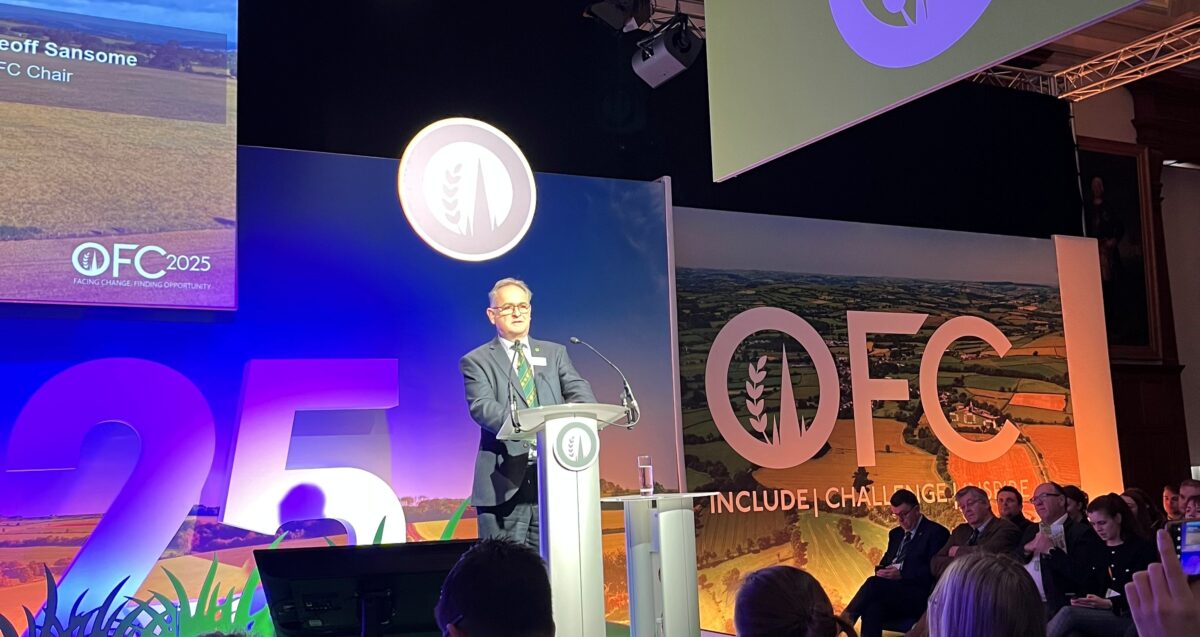During lockdown, many rural businesses have had to reassess their offering to remain viable. In fact, we’d go as far as saying there’s been a pervasive digital coup taking place in the countryside over the past twelve weeks.
Our three podcast guests shared their recent experiences with us – each demonstrating that staying connected with customers, clients and the public, using online platforms, has been an essential strategy during the current crisis.
Open Farm Sunday
Since the first Open Farm Sunday took place in 2006, over 1,500 farmers across the UK have opened their gates welcoming 2.5m visitors to their farms. So this year, event organiser LEAF faced a huge obstacle.
We interviewed LEAF chief executive, Caroline Drummond, to see how the challenges of hosting a nationwide event during lockdown were overcome by bringing the farm to the phone. This saw the launch of Online Farm Sunday, which took place on 7 June 2020.
Written by…
Farmers embrace the digital world
During Online Farm Sunday, 13 farms from around the country each delivered a half hour tour on Facebook Live. Selected to represent the sheer diversity of landscapes, farm types and activities, LEAF succeeded in replicating a unique showcase of farming life online while achieving phenomenal audience engagement across social platforms.
Facebook impressions reached 329k, with 89k on their Twitter feed. Their supporting videos were viewed 85.8k times – equating to 53.6 days of viewing!
The challenges in hosting Online Farm Sunday
Caroline readily admitted the drawbacks of the virtual world. She emphasised that many farmers’ daily role can be quite isolated, so welcoming members of the public on farm, seeing their joy and receiving thanks plays a huge part of the Open Farm Sunday experience.
Caroline explained:
“Nothing beats the ultimate experience of going on farm but sometimes you just have to adapt to the circumstances!”
The popularity of Online Farm Sunday is indicative of how important food production and rural environmental issues are to many consumers. A fact reiterated by the NFU’s social media driven petition to protect UK food standards, which has now surpassed 1m signatures – the 6th largest online petition.

Top tips for hosting rural events online
With digital forums rapidly filling the gap of the busy summer events season, Caroline gave her insight into making the transition as smooth as possible. It all comes down to one thing… PLANNING!
- Familiarise yourself with the technology you’re using, have the right kit and connection capacity (sometimes problematic in rural areas!) and pre-record content if necessary
- Prepare your story but don’t be so over-rehearsed it doesn’t feel genuine
- Be ready for environmental challenges – the British weather is likely to work against you! Wind and rain can play havoc with sound quality, so have an indoor alternative lined up
- Have a team in place, ready to respond to online interactions in real time
The key takeaway from our conversation with Caroline is, be realistic with your plans. That means being mindful of the shortfalls that still exist in digital networks in some areas of rural Britain.

Rural connectivity issues
The issues with rural connectivity was a point that strategic marketing consultant and founder of the Rural Business Awards (RBAs) and Rural Business Group (RBG), Anna Price, highlighted.
Anna explained:
“Poor internet service has proved challenging for many rural SMEs in the past, yet thankfully there’s ongoing investment in the UK’s telecommunications infrastructure.”
Anna also said many of the RBG’s members had found themselves pleasantly surprised by the capacity of their broadband service, especially considering how reliant on it they’ve become during lockdown.
How rural businesses have responded to increased demand
Globalisation has been gathering pace in recent years, yet Anna was keen to explain how the pandemic has had the positive effect of making people look at what is available in their local communities.
Anna said:
“Rural businesses have responded quickly to this new demand, often by implementing rough and ready mechanisms – be that telephone orders or using Facebook and Messenger, etc. Ordering systems doesn’t necessarily require huge investment to pull off successfully and is something many farm shops have readily embraced.”
Ongoing improvements to connectivity will enable rural businesses to capitalise on the online sales opportunities that exist. It also makes remote working much more viable. This could potentially lead to an influx of people moving to rural areas in search of a better work/life balance.
A population increase in rural towns and villages would pose its own challenges, in terms of infrastructure and public services. However, it’s a trend that Anna identified a couple of years ago and the current pandemic has really put this issue in the spotlight.

Rural research indicates positive business results
Playing an active role in the local community is something that Knight Frank’s head of rural research, Andrew Shirley, is very aware of. As landowners and employers, rural estates’ dynamics and interface in their local economies is significant.
Knight Frank has delivered a new Rural Report which provides an overview of how COVID-19 has impacted rural estates, while providing exclusive insight into their future.
Knight Frank’s survey of clients revealed that 75% had been affected by the pandemic, particularly in terms of diversification.
Andrew explained the move towards more locally sourced food and a growing awareness of the benefits that the countryside offers:
“Looking ahead, there’s a need to consider land differently. Farming will become more competitive as subsidy arrangements change and new trade deals are implemented post-Brexit. This will result in a need for estates to generate new income streams that create additional natural capital from the land.”

What is the new ‘normal’ after the Coronavirus pandemic?
Our guests have each shown how rural businesses and communities have had to adapt to life in lockdown. Many have implemented strategies that have enabled them to maintain engagement with their audiences, which hopefully leads us all to be in a far stronger position as we recover and restrictions continue to relax.
However, what remains to be seen is whether the strategic changes that so many businesses have embraced will persist as the ‘new norm’ in the rural world after COVID-19.






















